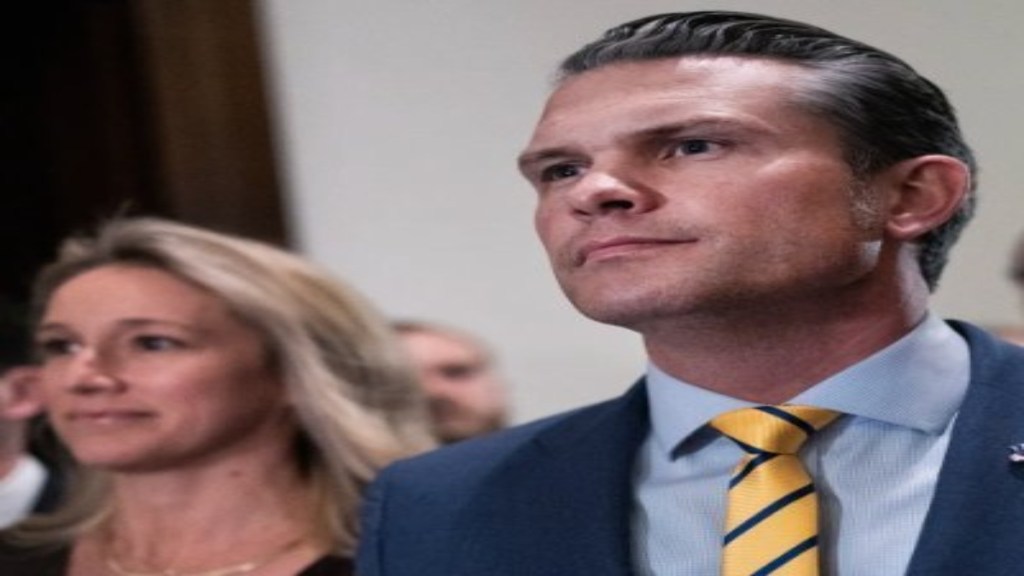India-China crisis: As US Secretary of Defense Pete Hegseth called on Asian nations to increase military spending to counter China’s growing threat in the Indo-Pacific, India finds itself at a pivotal moment. Speaking at the Shangri-La Dialogue in Singapore, Hegseth bluntly stated that China is “rehearsing for the real deal” when it comes to taking Taiwan, urging allies to deter aggression through stronger defence postures.
“It has to be clear to all that Beijing is credibly preparing to potentially use military force to alter the balance of power in the Indo-Pacific … There’s no reason to sugar coat it. The threat China poses is real, and it could be imminent.”
Push for 5% defence spending
Hegseth called on America’s Asian partners to significantly raise their defence budgets—up to 5% of GDP—warning that time is running out to deter a potential Chinese invasion of Taiwan. He stressed urgency and self-reliance, echoing US President Donald Trump’s earlier demands for burden-sharing, once directed at NATO allies.
“NATO members are pledging to spend 5% of their GDP on defence—even Germany,” he noted. “So it doesn’t make sense for countries in Europe to do that while key allies in Asia spend less on defence in the face of an even more formidable threat, not to mention North Korea?”
Warning against economic dependence on China
Hegseth cautioned regional governments against deepening economic ties with China while simultaneously relying on US security guarantees. He made it clear that a future Trump administration would pursue a NATO-style model in the Indo-Pacific—pressuring allies to invest more in their own security.
“The message is direct: deterrence requires real investment. The Indo-Pacific can no longer afford complacency,” he said.
India, which shares a tense and contested border with China, has its own compelling reasons to remain vigilant. The 2020 Galwan Valley clash underscored the People’s Liberation Army’s assertiveness. While India has increased military modernisation and infrastructure along the border, its strategic approach remains rooted in maintaining autonomy and avoiding formal alliances, especially those perceived as anti-China.
US shifts strategic focus to Indo-Pacific
With Europe showing greater self-reliance amid the Ukraine war, the US is now pivoting its strategic emphasis toward the Indo-Pacific, which Hegseth termed Washington’s “priority theatre.” He announced expanded joint military exercises, new repair hubs in Australia, and the first live-fire test of a US mid-range missile system in the region.
‘Not here to preach, but to partner’
Hegseth emphasised that the US does not seek to impose ideological values on its allies. “We’re not here to preach to you about climate change or cultural issues,” he said. Instead, he called for alignment based on shared security interests, warning of China’s growing military ambitions. While acknowledging respect for Chinese civilization, he added, “We will not be pushed out of this critical region.”
The absence of a senior Chinese official at the conference was noted. “We are here this morning and, notably, someone else isn’t,” Hegseth remarked. He also indirectly addressed French President Emmanuel Macron’s skepticism over the reliability of US alliances, arguing that alliances must be reciprocal in both perception and reality.
US politics
Hegseth’s remarks echoed the Trump administration’s core defence themes: expanding military might, securing borders, and reviving controversial plans like “taking back the Panama Canal.” He highlighted a proposed $1 trillion defence budget for next year and emphasised new weapon systems, including the Golden Dome.
Responding after Hegseth’s speech, US Democratic Senator Tammy Duckworth welcomed the commitment to the Indo-Pacific but criticised his tone as “patronising.” She stressed the importance of unity over dominance, asserting that bipartisan support for Indo-Pacific security is growing in Congress. “We just need to stand together,” she said, emphasising that the goal is not to make countries choose between the US and China, but to uphold international norms together.

